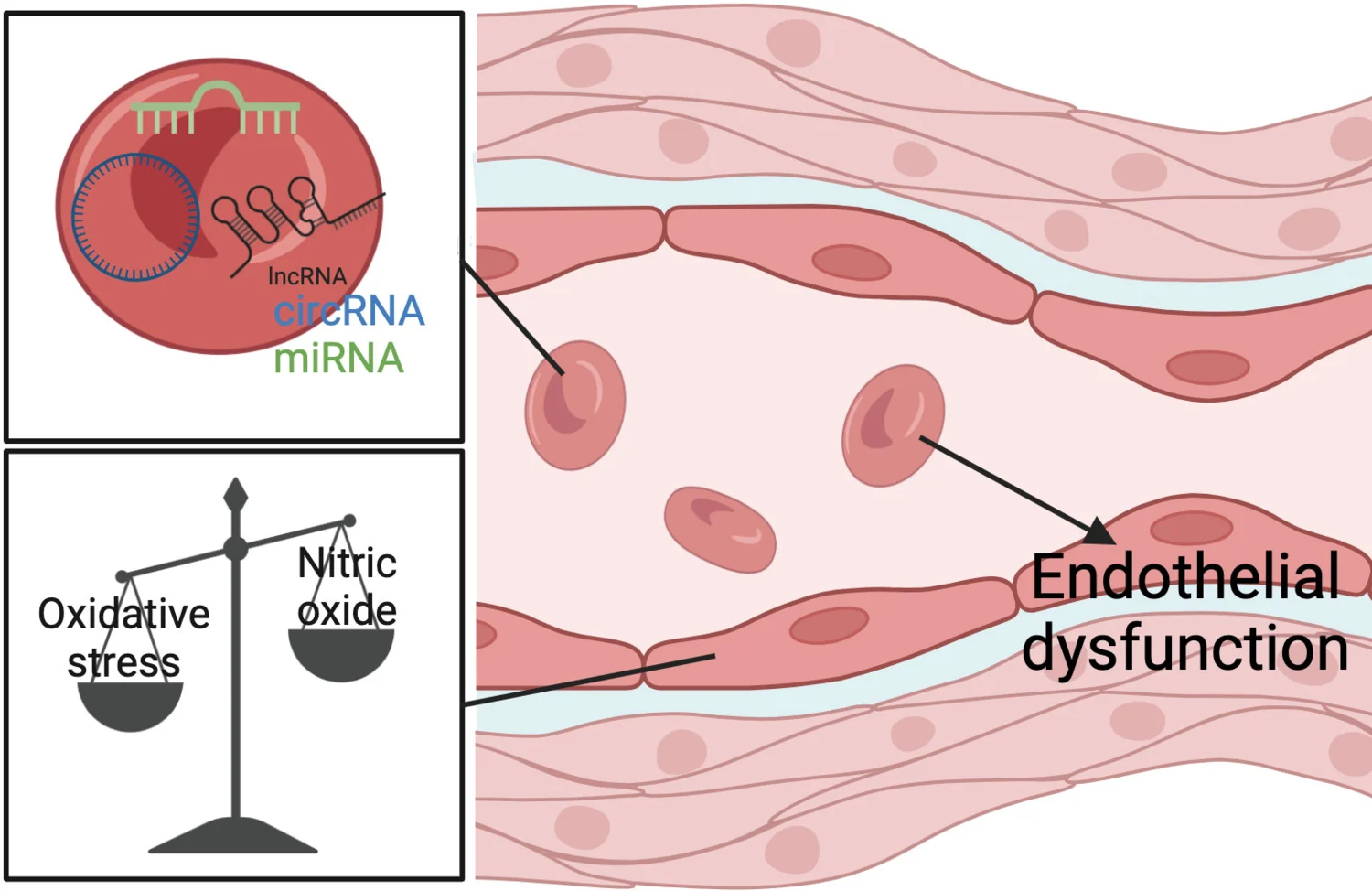Our research
A central and early driver of vascular complications is endothelial dysfunction, marked by increased oxidative stress and reduced bioavailability of nitric oxide—an essential molecule for maintaining healthy blood vessels.
Cardiovascular research has predominantly focused on the vasculature, overlooking the role of circulation and circulating cells in endothelial regulation. Historically regarded as passive oxygen transporters, red blood cells (RBCs) have now emerged as active regulators of vascular homeostasis. My previous work revealed a paradigm-shifting role of RBCs in cardiovascular health, demonstrating their significant contribution to endothelial dysfunction in type 2 diabetes and their potential as biomarker sources.

RBCs are rich in non-coding RNAs (ncRNAs), including microRNAs, long ncRNAs, and circular RNAs, yet their role in vascular health is poorly understood. Our translational study combines high-throughput ncRNA profiling with functional validations in RBCs from well-characterized patient cohorts to elucidate how RBC-derived ncRNAs drive endothelial dysfunction. We further test promising ncRNAs as therapeutic targets and biomarkers for assessing endothelial dysfunction and predicting cardiovascular risk. In collaboration with clinicians, translational and basic researchers, our research team aims to uncover how RBCs affect vascular health and establish targeting RBC-derived ncRNAs as a new strategy for preventing and predicting cardiovascular complications.
